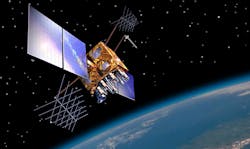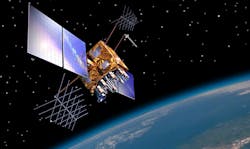Galileo, the European Union’s answer to GPS, regained initial services on July 18, after a weeklong outage that began on July 11. According to a release by the European Global Navigation Satellite Systems Agency, known as GSA, “Commercial users can already see signs of recovery of the Galileo navigation and timing services, although some fluctuations may be experienced until further notice.”
The GSA said that its team is monitoring its services to restore timing and navigation services at their nominal levels “We will set an independent inquiry board to identify the root causes of the major incident. This will allow the commission, as the program manager, together with the EU Agency GSA to draw lessons for the management of an operational system with several millions of users worldwide,” the GSA said in a statement.
EU’s Galileo is presently in an initial roll-out phase since it was launched in 2016, which means it would not yet lead critical applications. It has been reported that the search-and-rescue functions on Galileo satellites are unaffected by the outage. According to the GSA, “Galileo signals are used in combination with other satellite navigation systems, which allows for the detection of technical issues before the system becomes fully operational.”
Currently, there are 26 Galileo satellites in Earth orbit.

